The Steam Deck just had its first birthday. But is it for you?
There are six types of gamers that the Deck is a natural fit for. Are you one of them?
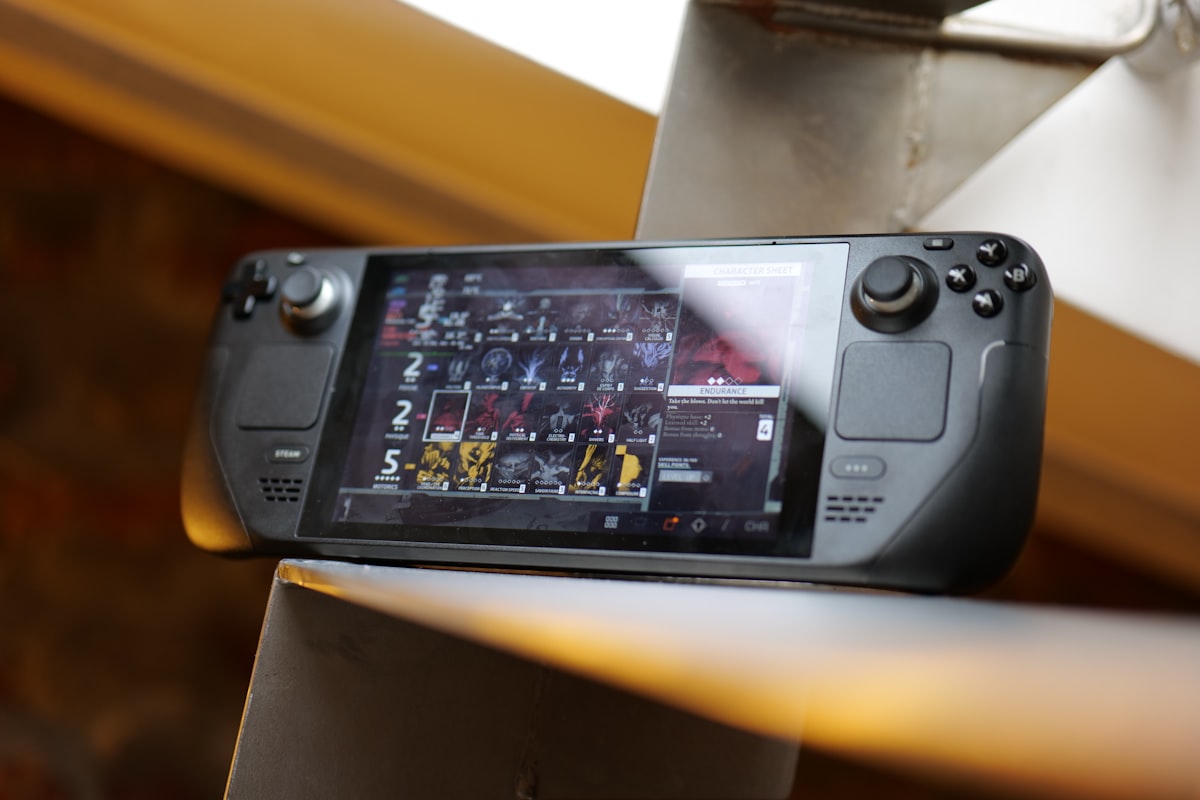
You wanna hear something crazy: I’ve had a Steam Deck for a year. Yeah. Valve sent me a review unit and it arrived here on February 24th, 2022.
That’s crazy to think about. To think back on the state of the Deck when I first got mine. How far it has come in that time…
The question is: should you buy a Steam Deck in 2023?
The answer, of course, is “it depends.”
How do you prefer to play games? What kinds of games do you play? Can you afford one?
So in honor of Steam Deck’s first anniversary, I think we should answer the question: who should buy a Steam Deck?
So there are six major categories of gamers that I think will love the Deck. I want to go over each of them and talk about how the Deck can augment or even fully replace your current method of play. There’s also one major caveat, one genre really, that doesn’t lend itself well to the Deck… yet… and we’ll talk to that in a bit.
Indie games
If you’re a sucker for the indie gaming scene, then the Steam Deck is for you. While the other categories we’ll talk about are also great on Deck, nothing can compare to the breadth of indie titles available for Steam Deck.
From classics like Super Meat Boy, Undertale, Shovel Knight, Bastion, Stardew Valley, and Spelunky, to modern hits like Hades, Dead Cells, Shotgun King, and Outer Wilds… the Steam Deck has more choice than any other platform. Most indie games just work, too–either because the developers released a native Linux version of their game, or because Proton supports the most common indie game engines.
So if you’ve wanted to get your hands on Ori and the Blind Forest, Cuphead, Stray, Owlboy, or Hollow Knight; the Steam Deck is, in my opinion, your first, best option.
Single player games

Single player titles are a genre-spanning flavor of gaming that have been around since the earliest days of the interactive medium. They provide a unique and immersive experience that can be enjoyed at your own pace.
They allow you to experience a fully-realized world in a way that other forms of entertainment simply can’t match. Whether it's exploring the vast open world of a game like Skyrim, or delving into the intricate narrative of a game like The Last of Us or the BioShock franchise. Single player games often afford us a unique and engrossing story. We can take their time to fully explore the game world and get lost in the narrative without feeling rushed or pressured to keep up with others.
Not to mention, you can choose how you want to approach a particular challenge, and you’re not limited by the actions or decisions of others. This level of agency can be empowering and satisfying, as players are able to take ownership of your gameplay experience.
So if you enjoy robust storytelling, single player campaigns, and the freedom of exploration, then the Steam Deck was made for you. Many of the best games for Deck right now are single player titles. Titles like Spider-man Remastered, Doom Eternal, Horizon: Zero Dawn, Red Dead Redemption 2, The Witcher 3, Elden Ring, or any number of other story-driven single player games find themselves right at home on Steam Deck.
Retro gaming
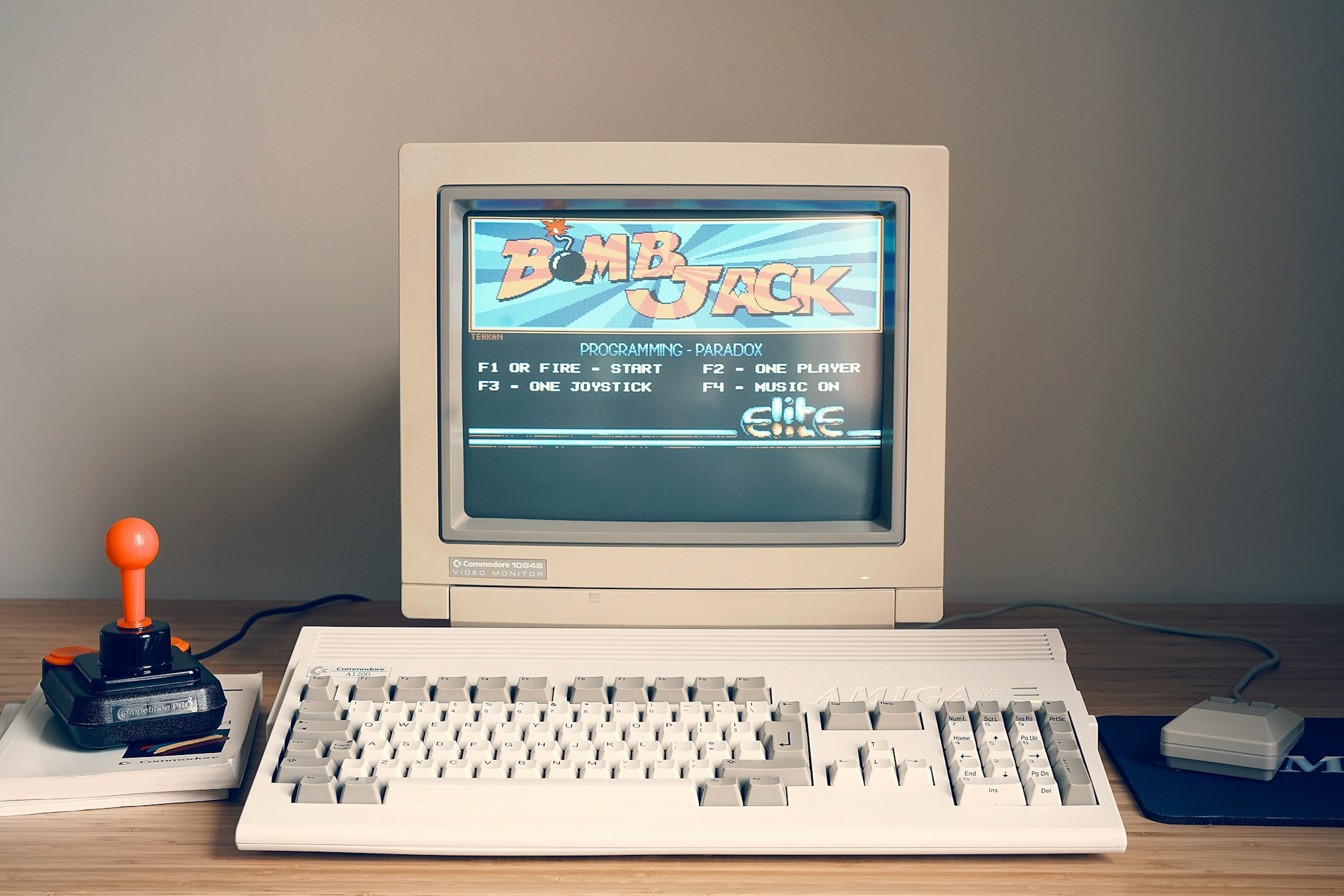
Believe it or not, Steam is a repository of classic PC games, both old and new. From titles that launched in the days of MS-DOS and Windows 95, all the way up to… well… whatever you consider classic. Strong releases from a decade ago certainly count. Titles like the original Crysis and Half-life 2. But there’s also modern remakes and re-releases like NightDive’s Doom 64, and Turok titles as well as the Crash Bandicoot N. Sane Trilogy.
Playing retro PC games on the Steam Deck is a great way to experience these classic games in a portable and convenient way.
One of the key features of the Steam Deck is its compatibility with the Proton compatibility layer, which allows it to run a large number of Windows-based games natively on Linux. While Proton has been lauded for its efforts to bring modern AAA games to Linux-based operating systems, fewer people celebrate it for its robust, mature, and capable support of Windows 9x and NT titles.
Games originally designed to run on early versions of Windows can be played on the Steam Deck without the need for additional software or emulators. And Proton provides a more stable foundation for legacy PC gamers than even Microsoft’s own compatibility tools offer.
Besides Proton, though, the Steam Deck has another trick up its sleeve: Steam Input. Where old games may not expect or support controller input–or may have some arcane input scheme that feels foreign to today’s sensibilities, Steam Input can map any number of inputs (controller, keyboard, mouse, gyro, touch screen, and even on-screen displays) to the Deck’s standard layout. This can offer a great way to breathe new life into older titles and allow the gamer of yesterday to find new, younger audiences.
Overall, playing retro PC games on the Steam Deck is a great way to experience classic gaming in a new and convenient way. The Proton compatibility layer ensures that old and new titles alike just work without any issues, making it a great choice for anyone looking to revisit their favorite classic games or discover retro gems.
Emulation
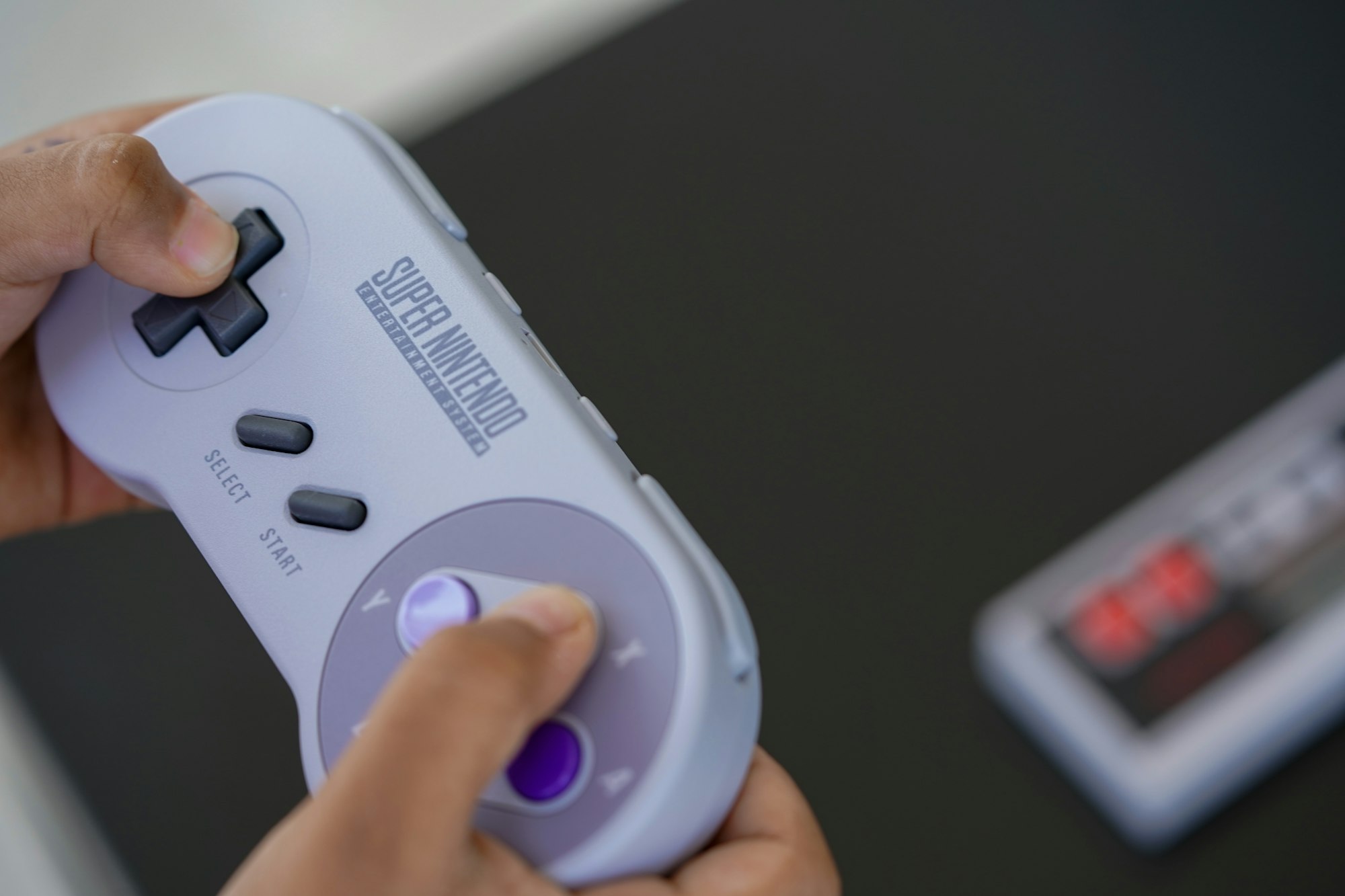
Emulation is a resource-intensive task. Most emulators worth their salt actually simulate the hardware of another machine in software. Generally speaking, the computational power required to emulate another machine is around 7x the machine being emulated. And thankfully, the Steam Deck has power in spades.
At its heart, the Steam Deck features a custom quad-core AMD APU that boasts an impressive eight-core RDNA2 GPU. This hardware is more than capable of running most emulators and retro games, allowing you to play classic console and arcade games on the go.
Additionally, the Steam Deck runs on the aforementioned custom version of Linux, which provides users with greater flexibility and control over their device. Linux is well-known for its compatibility with a wide range of emulators, and even when an emulator might not have a Linux build, the Steam Deck's Proton compatibility layer enables many Windows-only emulators to run.
And before you go down into the comments and toe the Nintendo line, whining that “emulation is piracy”–it. is. not.
Emulation is a viable and fully legal method of playing your games. Whether you get your roms by dumping them from your original cartridges, exporting them from a ROM compilation you bought, or by source them in other legal ways… so long as the emulator you’re playing on isn’t using proprietary code, you’re good to go.
And as many emulation enthusiasts have noted: Steam Deck is the best emulation device for the money.
Caveat - Online gamers

Now, I have a word of caution for you: multiplayer game developers are fairly standoffish when it comes to Steam Deck. Their reasoning for not supporting the Deck ranges anywhere from almost understandable to absurdly outlandish. But at the end of the day, if you primarily play online shooters or other online multiplayer games, you’ll want to do a bit of research before buying a Steam Deck.
I can tell you that as of writing, there are several popular online games that do work: Halo Infinite and Apex Legends being chief among them. But if you’re looking for something like Fortnite, that’s not going to work.
Can you dual boot Windows? Yes. But Windows provides an exceptionally poor user experience on Deck. Windows was designed to have a keyboard and mouse connected at all times and other applications can steal focus from your game while you’re playing. And frankly, Windows is a bad way to experience your PC games.
Who is it for?

But now that we know what games generally work well on Deck, there are two more things I want to touch on. The first is: who is the Steam Deck for?
If you’re a PC gamer who’s sick of sitting at your desk to play games, then the Steam Deck is for you. You can take the vast majority of your existing Steam library with you on the go. And that’s a game changer. Before I had my Steam Deck I maybe played games in my Steam library a grand total of 40 hours a year. And that’s a generous guess.
Heck… I played more on my Switch than I did on the Deck. And it drove me nuts because I already owned the games I wanted to play on PC… and every game on Switch seemed twice as expensive and the deals were never as good.
And that’s the other type of gamer that I think would love the Deck.
Switch owners

If you’re tired of paying through the nose for games, if you just want to play games and not have Nintendo Switch Online shoved down your throat… if you love the fact you can take your library with you… the Deck is for you.
As soon as I got my Deck I was playing games on it. I didn’t have to sit at my desk. I didn’t have to play on Windows. And I was playing even more than I was on my Switch.
You don’t have to have a Steam account already. You can be new to PC gaming. The Steam Deck makes PC gaming accessible to everyone.
And when it comes down to it, the Steam Deck is an incredible handheld. Truly, it's only shortcoming is that some game developers don’t want you to play their games.
I’m so excited for what the future holds for this device. In a year’s time we’ve gone from half-baked software with some cool ideas in need of refinement to a turnkey consolized gaming PC with a AAA software experience. I’m so excited to see where we are by this time next year.
What do you think? How long have you had your Deck? How have you been playing it? And what features will the Steam Deck have a year from now? Leave me a comment and let me know!

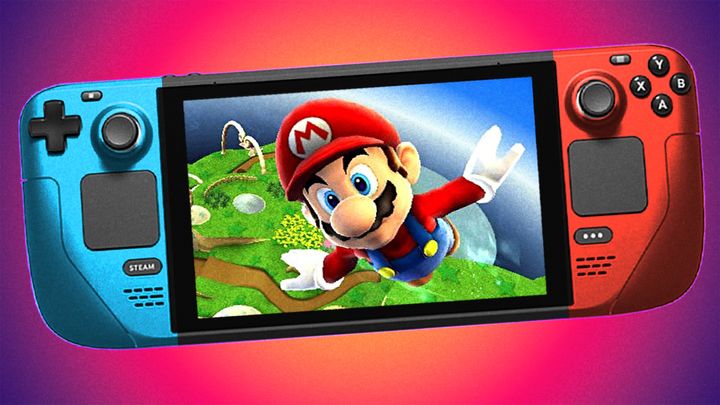
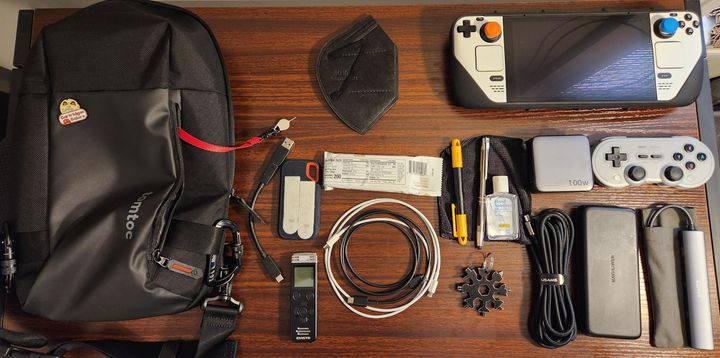

Comments ()